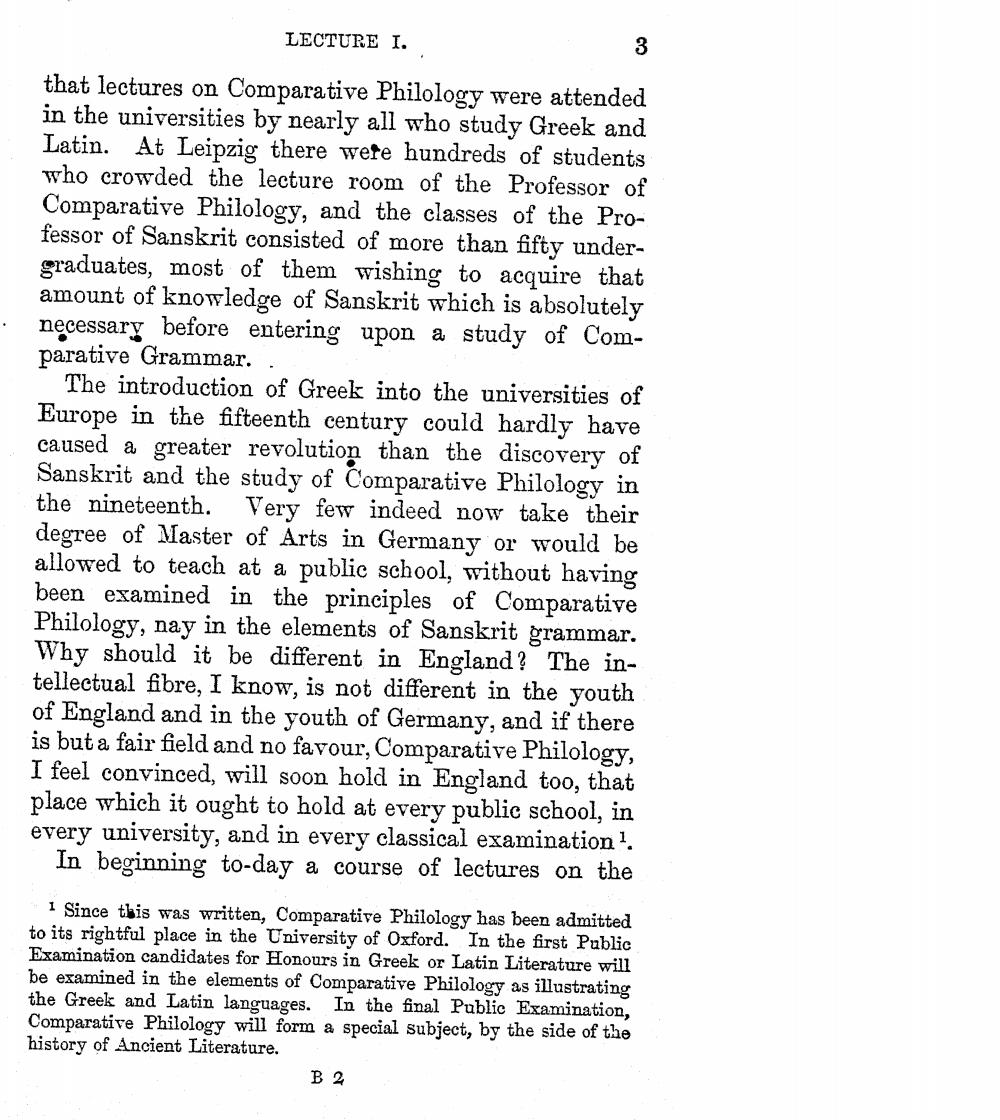________________
LECTURE I.
that lectures on Comparative Philology were attended in the universities by nearly all who study Greek and Latin. At Leipzig there were hundreds of students who crowded the lecture room of the Professor of Comparative Philology, and the classes of the Professor of Sanskrit consisted of more than fifty undergraduates, most of them wishing to acquire that amount of knowledge of Sanskrit which is absolutely necessary before entering upon a study of Comparative Grammar..
The introduction of Greek into the universities of Europe in the fifteenth century could hardly have caused a greater revolution than the discovery of Sanskrit and the study of Comparative Philology in the nineteenth. Very few indeed now take their degree of Master of Arts in Germany or would be allowed to teach at a public school, without having been examined in the principles of Comparative Philology, nay in the elements of Sanskrit grammar. Why should it be different in England ? The intellectual fibre, I know, is not different in the youth of England and in the youth of Germany, and if there is but a fair field and no favour, Comparative Philology, I feel convinced, will soon hold in England too, that place which it ought to hold at every public school, in every university, and in every classical examination
In beginning to-day a course of lectures on the
Since this was written, Comparative Philology has been admitted to its rightful place in the University of Oxford. In the first Public Examination candidates for Honours in Greek or Latin Literature will be examined in the elements of Comparative Philology as illustrating the Greek and Latin languages. In the final Public Examination, Comparative Philology will form a special subject, by the side of the history of Ancient Literature.
B 2




